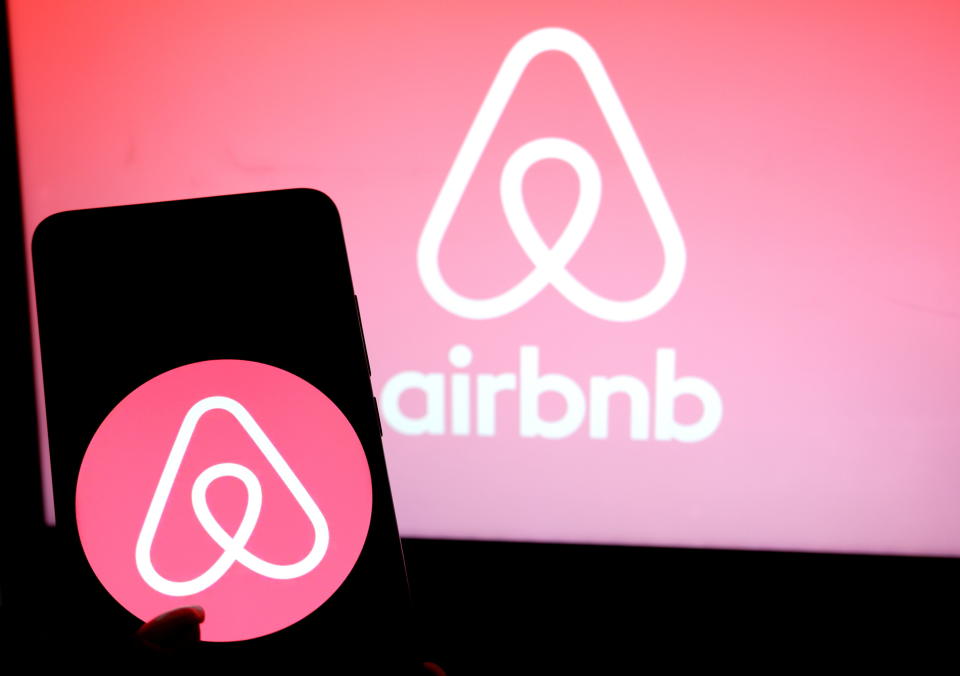Voters decide Airbnb's fate in New Jersey's second-largest city
Airbnb lost yet another attempt to clamp down on its unregulated business Tuesday, this time in Jersey City where, for the first time, the decision was put in the hands of voters.
In a vote by referendum on Tuesday, the city sought a cap of 60 days on rentals when a homeowner does not live on site, as well as requirements that Airbnb hosts have a business permit, homeowner’s insurance and undergo property inspections every few years.
In the past few years, Airbnb — which is slated to go public in 2020 — has been hammered by regulations starting in San Francisco in 2015, followed by Chicago, Boston, New York, Los Angeles, Seattle and Washington, D.C.
In a statement late Tuesday, a spokesperson said the loss was unfortunate, and blamed hotel-backed special interests for the battle.
"From the start of this campaign, we knew this was going to be one of the toughest fights we’ve faced, with the big New York hotel industry determined to fight home sharing, but we had an obligation to stand up for our community,” spokesperson Christopher Nulty said in an emailed statement.
"Cities from Buffalo to San Francisco, and Boston to Seattle have managed to pass comprehensive short-term rental regulations without punishing tenants or creating red tape and onerous registration systems. It's unfortunate to see the hotel-backed special interests run a campaign that moves Jersey City in a different direction.”
Regulations had previous been enacted through the government, rather than a vote the way it did in Jersey City.
‘Direct input from residents’
“It’s going to be the first time that you would assume that their investors actually have a glimpse into what the public actually thinks about their business model,” Jersey City Mayor Steve Fulop told Yahoo Finance Tuesday morning.
“Up to this point, they’ve been able to challenge politicians by saying elected officials are out of touch. But this is the first time that it’s actually going to be direct input from residents.”

That is because they city drafted the referendum after forming a committee of residents that fieldied complaints of quality of life concerns.
The situation with Airbnb has changed since 2015, when Jersey City supported Airbnb with “pretty much no regulations” and there were about 300 listings in the entire city. That number has grown to 3,500 currently.
“And that’s only going to grow as New York City makes more restrictions in the next year,” Fulop said.
‘Squeezing the housing market’
The issue is the volume of growth in such a short time has played a role in the booming housing market in the city, but in an artificial way.

According to data from the company the city cited, 70% of Airbnb hosts are commercial operators. Moreover, a recent article in Vice reported that fake hosts can rent out to individuals without much verification or accountability.
The company spent more than $4 million campaigning against the rules, saying they will crush the local economy that Airbnb has had a hand in boosting.
A spokesperson told Yahoo Finance the company fought back against the referendum on behalf of its hosts who asked the company to get involved.
"After Mayor Fulop legalized and regulated short-term rentals in Jersey City four years ago, thousands of residents have benefitted from the corresponding growth in the local tourism economy, including our host community, the people cleaning or managing short-term rentals, and local small businesses out in McGinley Square and The Heights,” said Liz DeBold Fusco.
“In fact, a majority of Jersey City voters support short-term rentals in their neighborhoods. But now, these thousands of residents may be in serious financial jeopardy, with some even at risk of foreclosure or bankruptcy -- all because of the mayor’s short-term rental ban, crafted at the behest of the hotel industry’s special interests.”
But Fulop said he isn’t against the company operating in the city — rather, he wants to ensure the housing boom the city is experiencing isn’t artificial.
Unlike New York City, the hotel options in Jersey City are sparse — even in the fast-growing downtown area that’s just a 10-minute train ride from New York City.
Airbnb began as a company that disrupted the hospitality industry with the idea of renting out a room in your home for a few days to visitors, Fulop said.
But because it has grown to commercial operators, that changes the rules of the game.
“Speculators are buying blocks of or (several) houses on a block and turning them into hotels,” he said.
“(It’s) squeezing the (housing) market, changing the character of neighborhoods— it has a lot of impact like that.”
Anjalee Khemlani is a reporter at Yahoo Finance. Follow her on Twitter: @AnjKhem
Follow Yahoo Finance on Twitter, Facebook, Instagram, Flipboard, SmartNews, LinkedIn, YouTube, and reddit.
Read the latest financial and business news from Yahoo Finance

